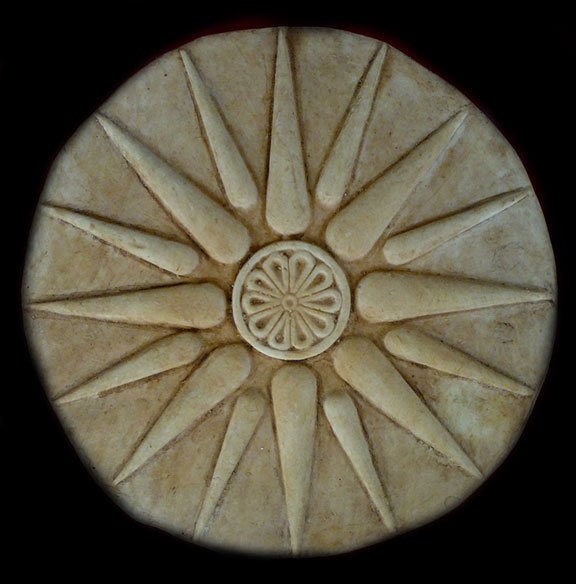Maybe it's not a question of interpretation, but it`s not important. Important is that was not your intention to distort my words.
I think that i have explained my opinion, i don`t agree with the theory of Zeus. I can`t contradict his theory because i am not a linguist. But because i can`t contradict his theory because i am an ignorant in linguistic, this is not an argument to prove that his theory is valid. From the other side, for the same reason it`s not correct to attack him personally, something that has been seen in the other thread and here from you and other members.
I can`t say that all was organised against him, but i noticed a syntony among different members in slandering, mocking, him, basically playing with his nerves. This is usually an tactic in the forums followed by t-rolls, to prepare the lamb for the butcher. Zeus is not a t-roll, he is not a spammer, or impolite. I think he explained perfectly this. Of course he has his limits when he is under preassure and is attacked by others. And he is not an nationalist because you failed to prove this accusation against him and i continue to belive, in good faith that you want to discuss about something that you have not any idea. He is someone who don`t start thread about the language, history, etc, of other ethnic groups. He was discussing about his language. This theory is not his personal theory. In the other thread Lab explained this. This is an theory that hes been discussed since XIX century from Albanians and foreigners, continue to be discussed in our days, even between Albanians and Greeks and you can not accuse a Greek as Albanian nationalist. It`s an theory like many others. For example this scholar think that Slavic is an Balticized Albanian:
SLAVIC, A BALTICIZED ALBANIAN?
It`s an theory like many other theories. And there is nothing bad if people discuss in a civilised manner. Eupedia is not the only forum in the world. There are plenty of forums specialised in history, linguistic, etc, and nobody is banned because he have an alternative point of view, there are even alternative subforums. The ad-hominem attack against a person, this kind of holy crusades are not allowed.
We have follow in these days the talks between Greece and FYROM about the name of this country. But we have read in this forum how members from FYROM claim that Thracian is a slavic language, but i did not notice this hysteria we saw against Zeus.
But excuse me, Albanians are probaly the most ancient ethnic group of this continent.
And in the end, to conclude this part of the post, this is the reason why forums exists, people can exchange opinions, discuss, etc, not following holy missions.
This is an other discussion. Albanian is not a pure language, it`s impossible. But Albanian is the only surviving language from many ancient languages spoken in antiquity in Balkans and not only. All the ancient language, Thracian, Dacian, Macedonian, etc, dissapeared. The ancient greek, the language of a great civilisation is a dead language. The latin, the language of another great civilisation and probably the greatest Empire in human history is an dead language.
Albanian survived. And we are talking about a language who has always been not only under preassure from all these civilisation and empires, but it`s probably the only indoeuropean language that the use it was forbiden with an Imperial decree, a Ferman of an Ottoman Sultan in the end of XVIII century and was accursed by the lackey of the Ottomans, the Patriarchane of Istanbul. We have the martyrs of Albanian language, teachers and orthodox priests killed by greeks and ottomans, always with the blessing of Patriarchate. Here you have some:
Papa Kristo Negovani
Anastas Kullurioti
Petro Nini Luarasi
There are many examples.
But the most terrible thing was that the Great Powers had decided the annihilation of the Albanian nation. This was a proccess that started during the XIX until the Secret Treaty of London 1915 where was decided the final solution of the Albanian question. We survived and of course survived our language. The same didn`t happened with an other old ethnic group, the Vlachs.
But i want to bring at your attention some interesting proccesses that happened with all the Balkan languages during exactly this period of time, beginning of XIX century until beginning XX century. If you start to read about the balkan languages you can see that with these languages happened revolutionary proccesses, greeks invented a new language, katharevousa, turks cleaned 80% of their language, etc. Revolutionary proccess in a language mean, inventing a new language. The reasons were diffferent. There was an discrepancy between the language spoken by the inhabitants of those new nations and the official language of those countries. Another important reason was the impossibility of these languages to face the new realities created. One of the first challenges of a newly created nation is to write a Constitution, a Civil and Criminal Code and other important documents. These things are a test, among other things, also for the language.
These revolutionary proccesses didn`t happened with Albanian language. This language has successfully faced the challenges of modernity.
For all this and many other things, we have reason to be proud of our language and efforts made by our ancestors to preserve this unique language. This is history, not nationalism.
What exactly is the problem with my posts? Can you explain this?






